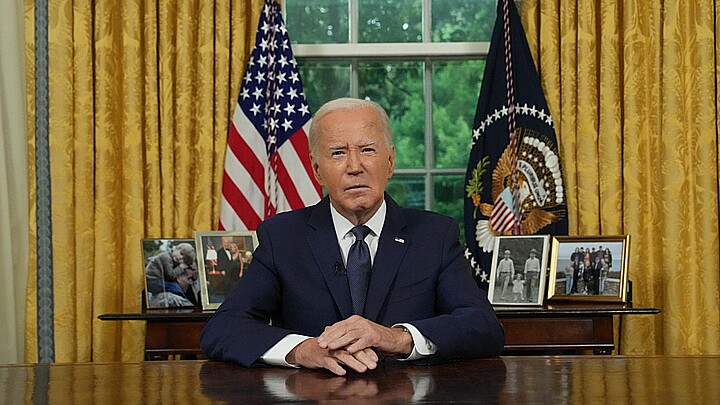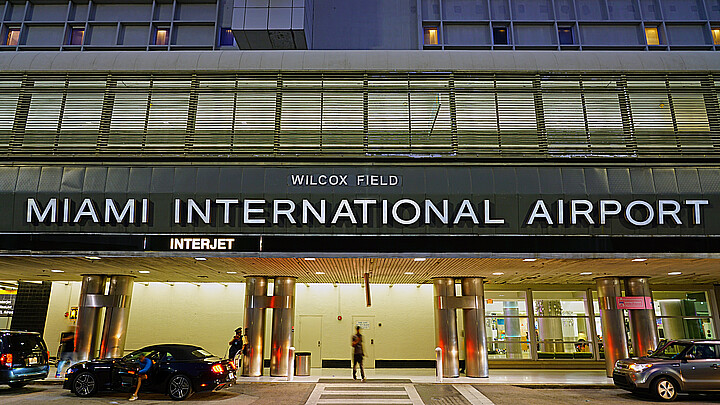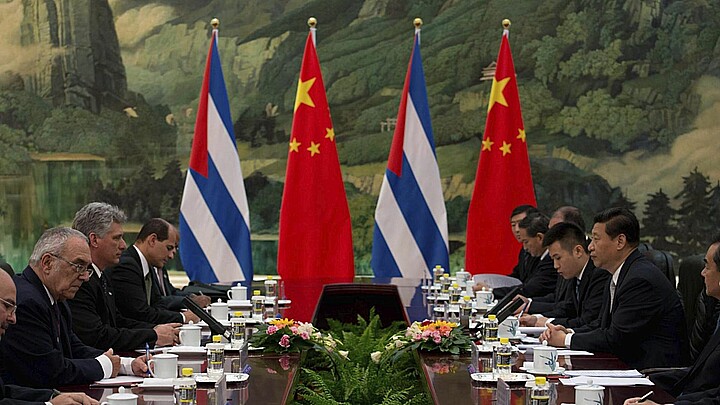Politics
U.S. government lifts restrictions on flights to Cuban provinces
The Biden administration on Wednesday lifted restrictions on flights to Cuba, including a ban on U.S. airlines traveling to airports outside Havana
June 2, 2022 12:33pm
Updated: June 2, 2022 2:36pm
The U.S. government on Wednesday lifted restrictions on flights to Cuba established under former President Donald Trump, including a ban on U.S. airlines traveling to Cuban airports outside Havana, according to a Reuters report.
The U.S. Department of Transportation (DOT) issued the order with immediate effect at the request of Secretary of State Antony Blinken. The senior official said the Biden Administration took the action "in support of the Cuban people and in the foreign policy interests of the United States," according to Reuters.
The White House had announced the move last month as part of a shift in its Cuba policy. The aviation restrictions were put in place for 2019 and 2020, including banning U.S. airlines from flying to eight international airports in Cuba outside Havana, including Camagüey, Cayo Coco, Cayo Largo, Cienfuegos, Manzanillo, Matanzas, and Santiago de Cuba.
Mike Pompeo, then-Secretary of State, claimed that Cuba "uses tourism and travel funds to finance its abuses and interference in Venezuela. Dictators cannot be allowed to benefit from U.S. travel."
Under the Trump administration, the DOT allowed authorized public charter flights to and from Havana and other authorized charter flights "for emergency medical, search and rescue, and other travel deemed to be in the interest of the United States."
The Biden Administration announced on May 16 new measures in its Cuba policy, including, among others, increasing the allowable limit on remittances, restoring charter and scheduled flights to provinces on the island, and increasing visa processing at the U.S. Embassy in Havana.
The move would authorize "scheduled and charter flights to locations outside Havana" and make changes in the rules "to reinstate person-to-person group travel and other categories of educational group travel, as well as certain travel related to professional meetings and professional research.
According to a State Department statement, these steps were taken to "increase support for the Cuban people in line with our national security interests. The Cuban people face an unprecedented humanitarian crisis, and our policy will continue to focus on empowering the Cuban people to help them create a future free from repression and economic suffering."
U.S. political figures criticized the Biden Administration in mid-May after the announcement of the package of measures. In a statement, Bob Menendez, a Democratic senator of Cuban origin, rejected the decision to reinstate authorization for some types of travel that former President Donald Trump had restricted, such as those for supposed educational or professional purposes, as well as those of groups of Americans who would make contacts with the Cuban people.
According to Menendez, chairman of the Senate Foreign Relations Committee, such trips amount to regular tourism, officially prohibited for U.S. citizens by the economic embargo on the communist regime. "Let's be clear, those who still think that increased travel will serve to promote democracy in Cuba are simply refusing to acknowledge reality," the Democratic senator said.
Menendez claims that "for years, the United States foolishly eased travel restrictions on the grounds that millions of U.S. dollars would bring freedom and nothing changed. And as I warned then, the regime laughed at any promise to loosen its iron grip on the Cuban people and we ended up helping to fund the machinery behind its continued oppression."
His colleague Marco Rubio, a ranking Republican member of the Senate subcommittee dedicated to Latin America, stated on Twitter, "The regime in Cuba threatened Biden with mass migration and has sympathizers within the administration, and the result is that today we see the first steps toward Obama's Cuba policies."
Congressman Mario Diaz-Balart said he was "outraged" that the current U.S. government "has decided to weaken sanctions and support the brutal Cuban dictatorship."










